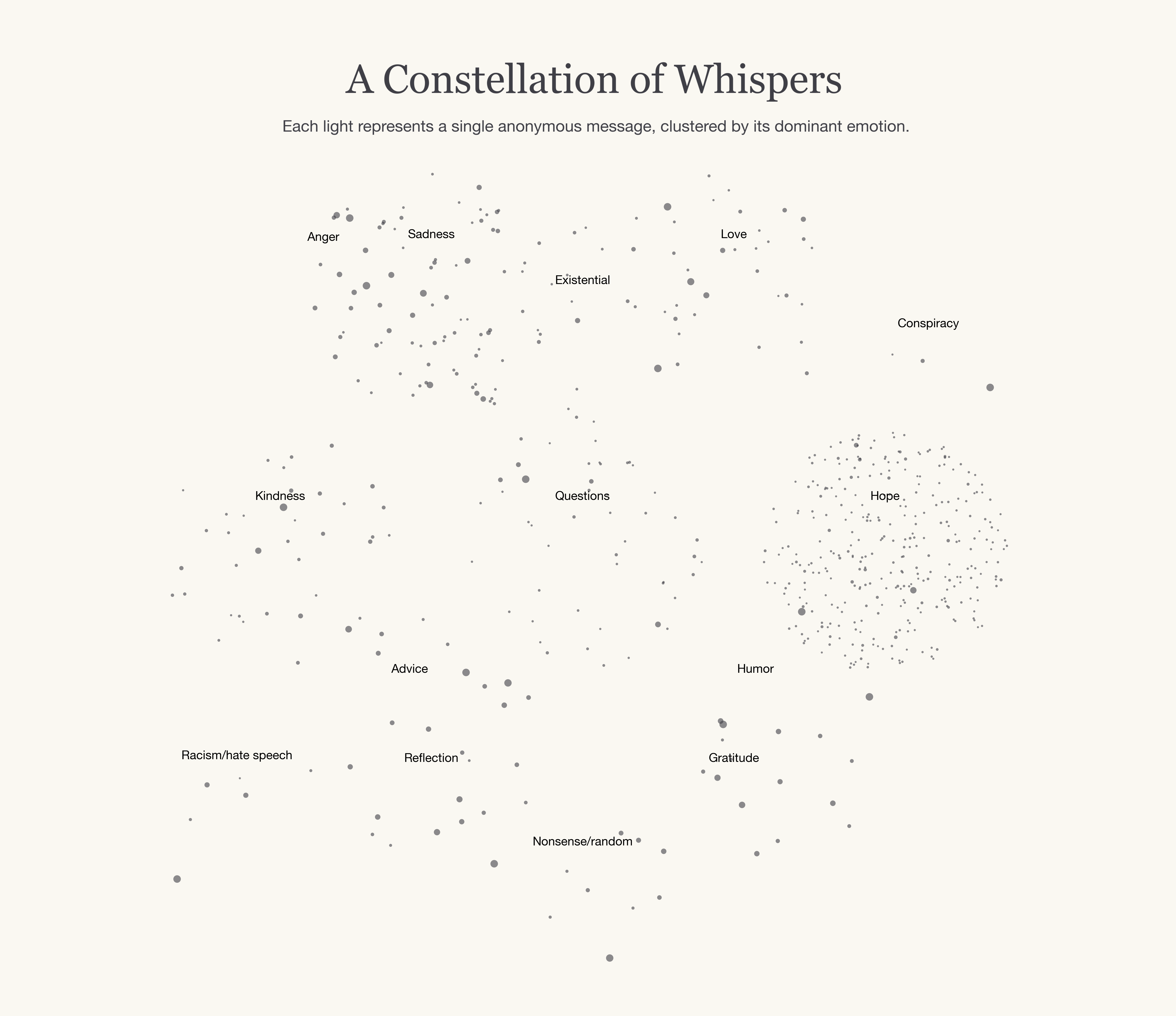
Data source: Collected from my web app Daylettr, where users anonymously write one daily note for the next user and receive a random one from the previous one. This captures raw human thoughts under guaranteed anonymity (no logins, no tracking). Full dataset: 1548 messages
Tools: Python (pandas for processing, seaborn/matplotlib for visualization). Emotions classified via keyword matching (e.g., 'hope' for words like 'hope', 'better'; expandable for nuance).
Insights: Anonymity seems to encourage positivity (even if it seems that it might do the opposite), over 60% of messages fall into uplifting categories like kindness, gratitude, and hope. But there's depth: reflection dominates when people ponder life, with rare but raw sadness or humor peeking through. It shows humanity's spectrum: supportive yet vulnerable.
Posted by TheHonestRedditer
![Emotional Categories in 1548 Anonymous Daily Letters Exchanged Between Strangers [OC]](https://www.europesays.com/wp-content/uploads/2025/08/ll7ydajxdrkf1-1920x1024.png)
2 comments
There seem to be a lot of hope and anger in those letters:D
I definitely misread the title to be about letters from the 16th century
Comments are closed.